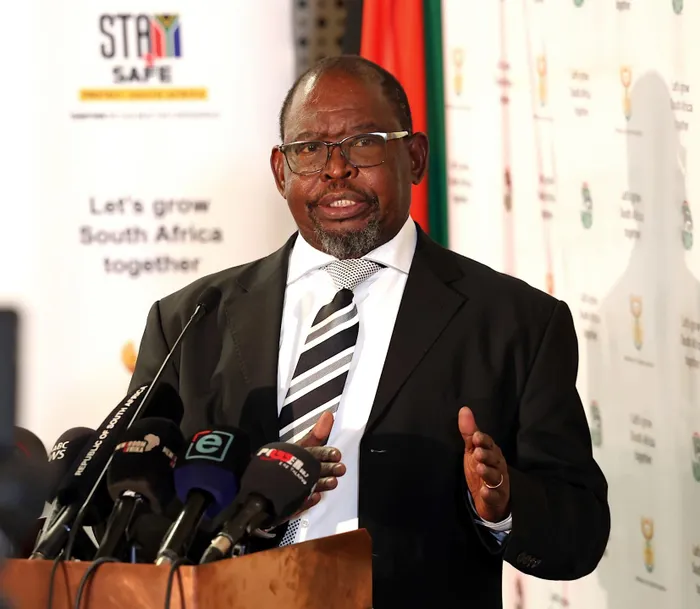
Finance Minister Enoch Godongwana presents Budget 3.0 amid political strife and economic uncertainty, with expectations of expenditure cuts and a downward revision of GDP growth forecasts.
Image: Picture supplied
The Finance Minister, Enoch Godongwana, is scheduled to table the budget 3.0 in parliament today.
This follows two failed attempts, in February and March, due to the opposition against the proposed VAT hikes, initially set at 2.0% and later reduced to 0.5% for two consecutive years.
Political tension persists within the Government of National Unity (GNU), particularly between the African National Congress (ANC) and the Democratic Alliance (DA), raising serious concerns about its durability.
Since budget 2.0, the economic outlook has deteriorated due to global protectionist trade policies and unusually high economic policy uncertainty.
We expect the Finance Minister to revise the GDP growth forecast downward from the March estimate of 1.9%, in addition to cancelling the VAT hike.
Consequently, the revenue shortfall will be higher than the projected R75 billion over the medium term.
Clearly, there is no political appetite to raise taxes, judging by two failed budgets. Therefore, maintaining the government expenditure plans presented in budget 2.0 will result in a wide budget deficit and higher borrowing. The deficit will probably be wider in the near term, albeit the medium-term trajectory is expected to improve.
The National Treasury's fiscal strategy is to limit borrowing and focus on stabilising elevated government debt by running the primary budget surplus. They will probably stick to that approach. Moreover, debt servicing costs are very high, absorbing nearly 22% of the main budget revenue. Adding more debt would further divert resources from critical expenditures to interest payments, eroding fiscal space.
We expect the budget to focus more on expenditure cuts. However, there is limited time for a comprehensive expenditure review. The treasury would have done extensive work to present areas where savings are feasible during the medium-term budget policy statement in October. The revenue-raising measures announced in March will probably be maintained, such as not adjusting personal income tax brackets for inflation and introducing an above-inflation increase in excise duties. We are not expecting a new tax policy, but rather a continued effort to strengthen the South African Revenue Service (Sars).
The persistent pressure on government finances is not a revenue problem, but rather a low economic growth trap.
The government should prioritise growth-promoting areas, such as investment outlined in phase 2 of Operation Vulindlela, to achieve a high growth trajectory in the future. Without an improved economic growth path, the debt trajectory will continue to rise.
Finally, the GNU must collaborate more effectively to prevent volatility in the budget process and a potential fiscal credibility crisis.
Overall, there are still a lot of unfunded expenditure pressures that raise execution risk.
* Buthelezi is an economist at Sanlam Investments.
PERSONAL FINANCE